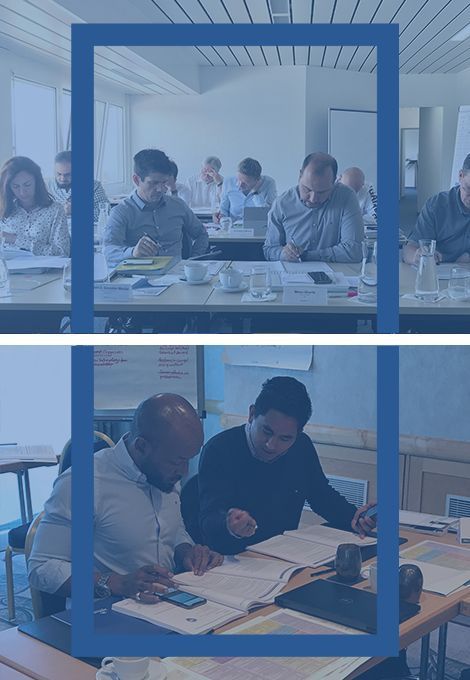Modules
- Introductions
- AIPMO
- Course outline, guidelines, and training approach
- Organization agility definition
- Framework for organizational agility
- Holacracy
- Social technology
- Leadership agility
- Organizational agility maturity model
- Agility challenges and how to overcome them
- Team exercise
- Introduction to value
- Success factors
- Value management lifecycle
- Value management in projects (EVM)
- Creating a value management culture
- Definitions
- PMO challenges
- Agile is a mindset
- Elements of Agile
- Agile manifesto
- AIPMO’s seven principles
- Importance of principles in methodologies
- Governance and principles
- Agile
- History
- Expressions of Agile
- PMO adaptive alignment
- Role of the PMO and value in an Agile environment
- Agile and virtual environments – challenges and solutions
- Agile is a mindset
- Agile's purpose
- Comparison of Waterfall to Iterative
- Agile’s basics
- Consequences and implications
- Agile methodologies
- Agile starts with a product backlog
- Basic scrum
- Daily stand-up meeting
- Backlog
- Kanban
- Srumban
- Cumulative flow diagrams
- Documentation and myths
- Team wall
- Agile estimating techniques
- Other techniques
- Agile approaches
- Agile at scale
- PMI's disciplined Agile
- PMO’s own use of Agile ideas
- PMO services: introducing Agile
- PMO as a source of expertise
- Services for “at scale”
- Training and coaching
- Reporting and governance
- Method selection
- Portfolio services
- Measurement
- Agile health checks
- Communities, consistency, and people aspects
- Tools
- Summary of support for Agile teams
- Why are they needed?
- Similarities and differences between Agile and non-Agile Maturity models
- Review of existing models
- Exercise
- Disruptive technologies
- Impact on organizations
- How Agile teams need to respond
- Research into Agile – hot topics
- PMO’s role in managing projects, programs, and portfolios
- PMO’s role in managing the Agile portfolio
- PMO’s role in managing the Agile program
- PMO’s role in managing Agile projects
- PMO’s role in managing Agile tools and techniques
- Agile tools
- Agile software
- Select the suitable software and tools
- Select the right techniques
- Summary of discussions and general consensus
- Retrospectives and the traditional world – similarities and differences
- Faciliatory for retrospectives
- Overview – retrospective phases
- Examples of retrospectives
- Exercise – course retrospective
- Revision and Exam











